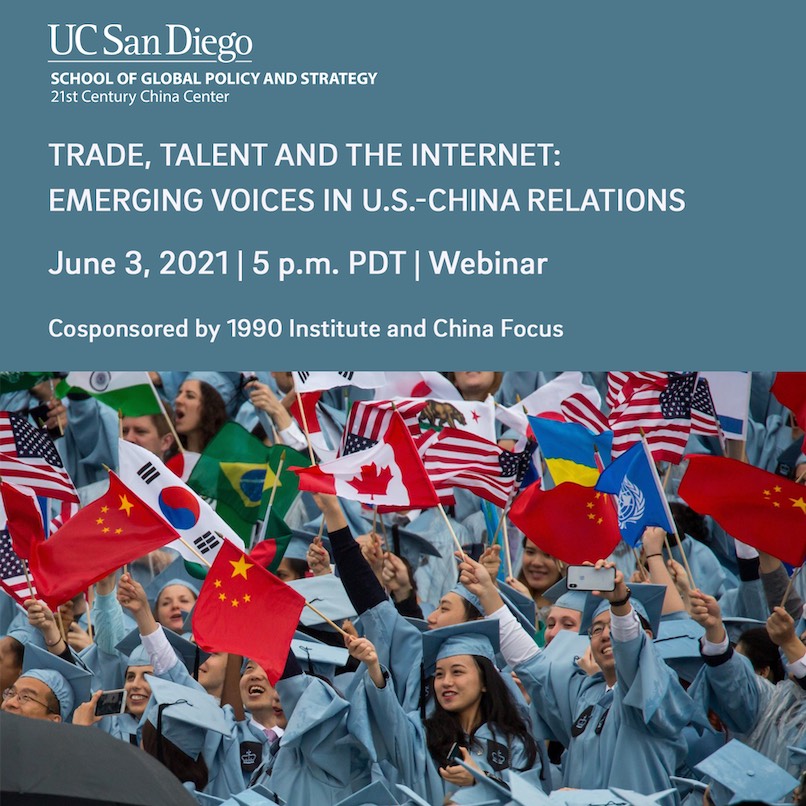| How can we keep forging our futures beyond Asian American and Native Hawaiian/Pacific Islander Heritage Month? By Frances Kai-Hwa Wang I was discussing programming ideas for MLK Library in Washington DC Chinatown with my friend Ryan a few months ago, and I mentioned that May is Asian American and Native Hawaiian/Pacific Islander Heritage Month (AANHPIHM). Ryan said, “We don’t have to wait for Asian Pacific American Heritage Month to do Asian American programming, we can do it in other months, too.” We both laughed because we know too well how many organizations only think about Black people during Black History Month and Asian American and Native Hawaiian/ Pacific Islander people during May. Because I live in a college town, we actually celebrate for three months every year, in March and April with the university students (because the semester ends in April) and in May with the community. But this year, because of everyone’s new-found virtual Zoom skills, there is so much innovative and creative programming across the country accessible to all. I feel a little like a Chinese Yo-Yo, though, snapping back and forth between the exuberant celebration of our history and arts, like Asian American Women Artist Association’s Sowing Agency art exhibition and Center for Asian American Media’s CAAMfest film festival, and the devastating COVID-19 news coming out of India and Nepal. I ask about friends and friends’ families in India and Nepal, and I wish I could do more. Stop AAPI Hate, a national coalition addressing anti-AAPI racism in the U.S., released its national report this month analyzing 6,603 hate incidents that occurred between March 19, 2020 and March 31, 2021. While the numbers may be disheartening, the Fulton County District Attorney will seek hate crime charges on the basis of both race and gender for the Atlanta spa shooter. The Sikh Coalition and local Sikh community leaders continue to urge authorities to thoroughly investigate the possibility of bias in the shootings at the Indianapolis FedEx. “While hate towards all AAPIs persists, women continue to report at a disproportionate rate (64.8%) to our center,” said Stop AAPI Hate in a statement. “This trend is in no small part due to the combination of racism and misogyny Asian American women experience. In reports shared with Stop AAPI Hate, women describe their experiences of simultaneously facing sexual harassment and racism — showcasing how COVID-19 is being weaponized as part of sexual harassment.” Stakes are high so be bold, think community solidarity, and let the music forge forward. |
| |
|
| | Who Counts as Asian, and What Counts as Anti-Asian Hate? | Medium Professors Jennifer Lee and Karthick Ramakrishnan on how Asian Americans of all backgrounds experience discrimination and violence, but narratives of anti-Asian hate tend to center East Asians. “While 72% of Chinese Americans worry about being a victim of a hate crime, so too do 68% of Southeast Asians and 58% of South Asians.” The ‘Black-Asian Conflict’ Is a Problematic Trope — and It’s Time to End It | #StopAsianHate Medium Essay from writer Jeff Yang about how efforts to direct Asian American anger at the Black community are rooted in White establishment anxiety and a new new Solidary Project coming on May 19 from cultural historian Jeff Chang and Academy Award-nominated filmmaker Renee Tajima-Peña. Once a covid success story, Taiwan struggles with a vaccine shortage | Washington Post This past year, Taiwan has been heralded for its successful containment of COVID-19, so much so that while other countries began mass vaccination drives, few in Taiwan saw the need. Now with the recent COVID-19 outbreak, Taiwan is scrambling to get enough vaccines and to get vulnerable populations vaccinated. Indian diaspora helping amid Covid crisis says government not doing enough | NBC News "It is not the job of Indians to be looking for oxygen," said a professor organizing relief efforts. “I think it's really important for us on this side, since we're really privileged and protected, to amplify those voices that are being silenced in India.” Nepal says its Covid response is under control – everyone can see it’s not true |The Guardian “I am trained not to sleep for 48 hours, but I am not trained to send patients away without help,” Dr. Pandey says. “And we know that things are just going to get worse.” COVID’s Outsize Impact on Asian Americans Is Being Ignored | Scientific American Asian Americans and Pacific Islanders suffer from disproportionately high death rates and hospitalizations and low testing — but their suffering remains invisible. Alibaba calls its $2.8 billion antitrust fine a ‘one-time impact’—but the risk of more regulation lingers | Fortune Chinese e-commerce giant Alibaba posted its first-ever quarterly operating loss since going public but claims that the loss was a direct result of a record $2.8 billion antitrust fine in China. Otherwise, it would have shown growth and a net profit of $1.6 billion. China is experiencing a rural tourism boom amid the Covid-19 pandemic | CNN “China is in the middle of a boom in rural tourism as city dwellers escape the country's rapidly expanding urban centers to head out to small communities, farms and orchards for a taste of the simple life. And the Chinese government couldn't be more pleased.” |
|
|
| |  | | | We’re pleased to announce three engaging panel discussions in the next two weeks, the well-deserving winners of our College Essay Contest, and our newest video on the horizon! - Register for “The Rise of China and Asian Americans” next week: Thursday, May 27 at 4 pm PDT. The future of Asian Americans, projected to be the fastest growing minority group in the U.S., will be highly important to America's leadership in business and trade, science and technology, and as a global power. The response of our government to the rise of China has had repercussions on Asian Americans, who have contributed to America's global competitiveness. Our panel will discuss our domestic policy options to keep America at the top of its game. Don’t miss it! Register now.
- Clay Dube (Moderator), Director of the University of Southern California U.S.-China Institute and a member of our Advisory Council
- Gordon H. Chang, Senior Associate Vice Provost and Olive H. Palmer Professor in Humanities, Stanford University, and also a member of our Advisory Council
- Peter Leroe-Muñoz, General Counsel and Senior Vice President, Innovation and Technology, Silicon Valley Leadership Group
- Margaret K. Lewis, Professor of Law, Seton Hall University School of Law
- Please join Dan Chao, our Board Chair, for a webinar hosted by the Commonwealth Club titled “Asian Americans: Learning From The Past To Change The Future” on Wednesday, May 26 at 12 pm PDT. As attacks on Asian Americans repeatedly make the news, there is also a bigger story to tell about future challenges and how Asian Americans will help America be more competitive in this brave new world. Join this insightful discussion with prominent Asian American leaders not only about the history of Asian Americans in the U.S., but also about the contributions Asian Americans are making today and what all Americans should focus on as we fight together against modern stereotypes and broken systems and face current and future challenges. Register here.
- Dan Chao, Board Chair and President, 1990 Institute
- Dennis Wu, Chair of Asia Pacific Islander American Public Affairs (APAPA), San Francisco
- Evelyn Dilsaver, Chair of the Commonwealth Club Board of Governors
- We are excited to announce the winners of the College Essay Contest which was co-sponsored with the University of California San Diego and Fudan University: Shaun Ee and Theo Lebryk from the Yenching Academy of Peking University, William Yuen Yee from Columbia University, and Jimin Park from the University of Kansas. Congratulations! Please join us for “Trade, Talent and the Internet: Emerging Voices in U.S.-China Relations,” a virtual panel with the four prize winners on Thursday, June 3 at 5 pm PDT. They’ll share the stage to discuss their winning essays on topics ranging from the future of the internet and the international trading system to the importance of immigration and talent for the U.S. and China. Register here. You can read the winning essays on our website.
- Look out for our newest video, “Numbers Don’t Lie – Model Minority Explained in 3 Minutes,” launching next week. Why have Asian Americans been called the “model minority”? Is it a compliment, and if not, whom does it harm? Clinging to this stereotype leads to hidden disparities within specific populations as well as misperceptions and a lack of resources among disadvantaged groups. This video will break down the facts to show the full spectrum of the Asian American population.
- And don’t forget to watch “Call It What It Is: Racism Against Asian Americans.” This video covers events that have impacted the way Asians in America have been treated and how the past affects our lives today. We have a list of resources on anti-Asian bias in our Reference Library, and our podcast featuring Asian Health Services is streaming here: AAPI Healthcare: A Building Block of our Collective American Dream.
|
| | Dim Sum - A Little Bit of Heart |
|  | |
|
|
|
| Do you know which countries are the top five producers of motor vehicles? |
| |
|
According to the International Organization of Motor Vehicle Manufacturers, in 2019, China was the world’s leading producer of motor vehicles (including cars and commercial vehicles), manufacturing 25.72 million, two and a half times that produced by the US’s 10.88 million motor vehicles. Japan followed closely behind, with Germany and India producing half as much as Japan. |
| |
|
| | | 1990 Institute
P.O. Box 383 | San Francisco, California 94104
contact@1990institute.org www.1990institute.org Copyright 2021 The 1990 Institute. All rights reserved. |
| | | |
|
| |
|
|